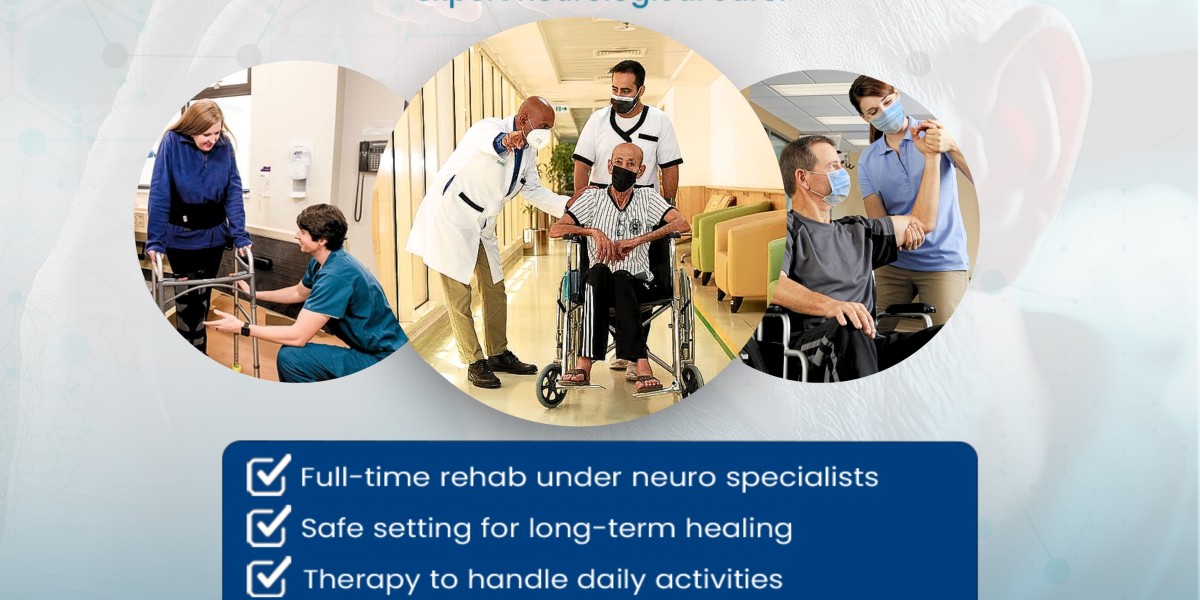What is Neurological Rehabilitation?
Simply put, neurological rehabilitation is a specialized program for people with conditions affecting their brain, spinal cord, or nerves. It's about more than just physical healing; it's a holistic effort to improve how you move, think and interact with the world. The aim is to help you achieve the greatest level of independence and participation in daily life.
A Team Approach to Your Well-being
Effective rehabilitation isn't a one-person job. It involves a compassionate team of experts, all working together to support your unique needs. This team might include:
Physiotherapists: They focus on helping you improve strength, balance, coordination and how you move. Think of it as relearning walking, standing, or simply feeling more stable.
Occupational Therapists: These professionals help you get back to daily activities. This could be anything from dressing and cooking to hobbies you enjoy. They also suggest helpful tools or home adjustments.
Speech-Language Pathologists: If communication or swallowing has become difficult, they're there to help. They work on speaking clearly, understanding others and safe eating.
Neuropsychologists or Counselors: Living with a neurological condition can be emotionally challenging. These specialists offer support for your feelings, memory, attention and coping strategies.
Rehabilitation Nurses: They play a vital role in managing your care, explaining medications and guiding you and your family through the process.
Real Benefits for Your Everyday Life
Engaging in a neurological rehabilitation program brings tangible advantages that can truly make a difference in your day-to-day life:
Better Movement: You can see improvements in how you walk, stand and handle things, making daily activities easier.
More Independence: Learning new ways to do everyday tasks helps you become more self-reliant.
Clearer Communication: Addressing speech issues can make conversations more natural and less frustrating.
Sharper Thinking: Therapies can help manage challenges with memory, focus and problem-solving.
Emotional Support: Having a team to talk to can help ease feelings of anxiety or sadness that might come with your condition.
Preventing Further Issues: Being active in rehab can help avoid other problems like muscle stiffness or weakened bones.
Who Can Benefit from Neurological Rehabilitation?
Many different conditions can benefit from this specialized care, including:
Stroke recovery
Rehabilitation after a traumatic brain injury
Managing conditions like Parkinson's disease or Multiple Sclerosis (MS)
Support after a spinal cord injury
Care for conditions like Cerebral Palsy or Guillain-Barré Syndrome
Recovery following brain surgery or tumors
Your Journey with Apokos Rehab
At Apokos Rehab, we understand that every person's journey is unique. Our experienced and caring team is here to provide dedicated support, focusing on your specific goals and needs. We use established practices and a supportive environment to guide your recovery. Our aim is to help you manage challenges and reclaim as much of your life as possible.
If you or someone you care about is living with a neurological condition, remember that meaningful progress is possible. With a commitment to your well-being and the right support, you can find your path forward.
Ready to learn more about how neurological rehabilitation can help you or a loved one? Explore our programs or contact us today for a compassionate conversation about your needs.







